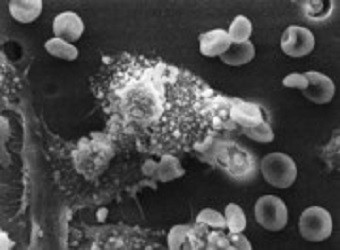
Possessing certain common genetic variants together can increase the risk of developing prostate cancer, new research shows.
Until the date, 77 genetic variants have been linked to prostate cancer. In the new study, scientists from The Institute of Cancer Research, University of Cambridge and University of Southern California looked at 87,040 men- 43,303 prostate cancer patients and 43,737 controls belonging to the European, African, Japanese and Latino ancestry- to identify 23 new genetic variants that increase the risk of the deadly disease in men.
Scoring the highest 1% in the 100 common variants test can increase cancer risk by 5.7 times, while the highest 10% is involved with 2.9 times increased risk of the cancer, the authors said.
"Our study tells us more about the effect of the genetic hand that men are dealt on their risk of prostate cancer," Professor Ros Eeles, Professor of Oncogenetics at The Institute of Cancer Research, London, said in a news release.
"We know that there are a few major genes that are rare and significantly affect prostate cancer risk, but what we are now learning is that there are many other common genetic variants that individually have only a small effect on risk, but collectively can be very important. To use the playing cards analogy again, sometimes multiple low cards can combine to form a high risk score."
Prostate cancer is a type of cancer that starts in the tissues of prostate. Nearly 1.11 million men around the world were affected by the deadly disease in 2012, according to the Cancer Research UK.
Researchers are now analysing whether genetic testing for the 100 common variants can help detect more number of the deadly forms of prostate cancer early and more accurate than the tests currently available for this purpose.
"Building on previous research this study gives a more complete list of these factors, bringing us closer to knowing who may need screening for prostate cancer and which men may benefit from early treatment. More work needs to be done, but identifying these genetic factors will allow us to better understand the disease and maybe even develop new treatments," Professor Malcolm Mason, prostate cancer expert for Cancer Research UK, said.
The study has been reported in Nature Genetics.








